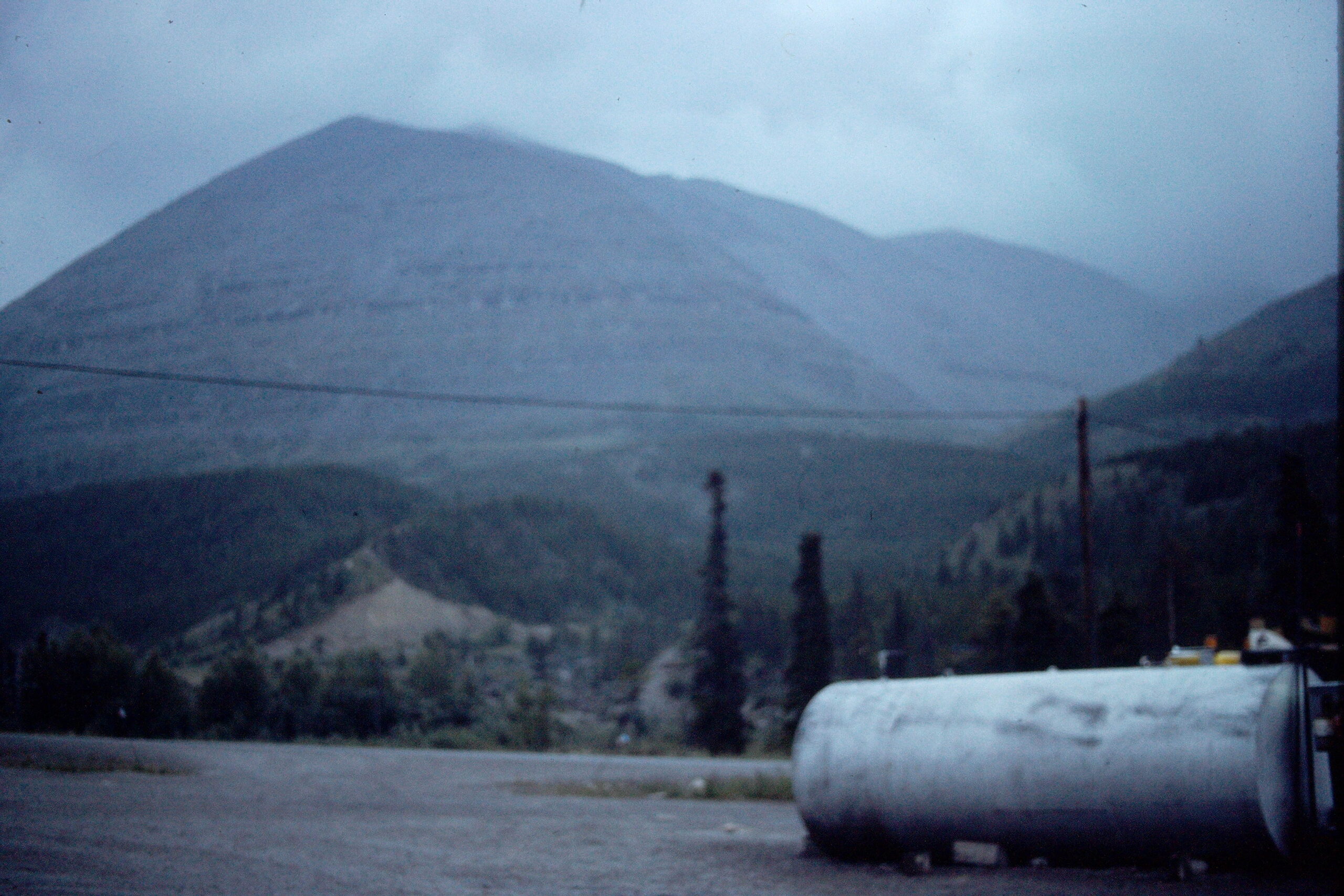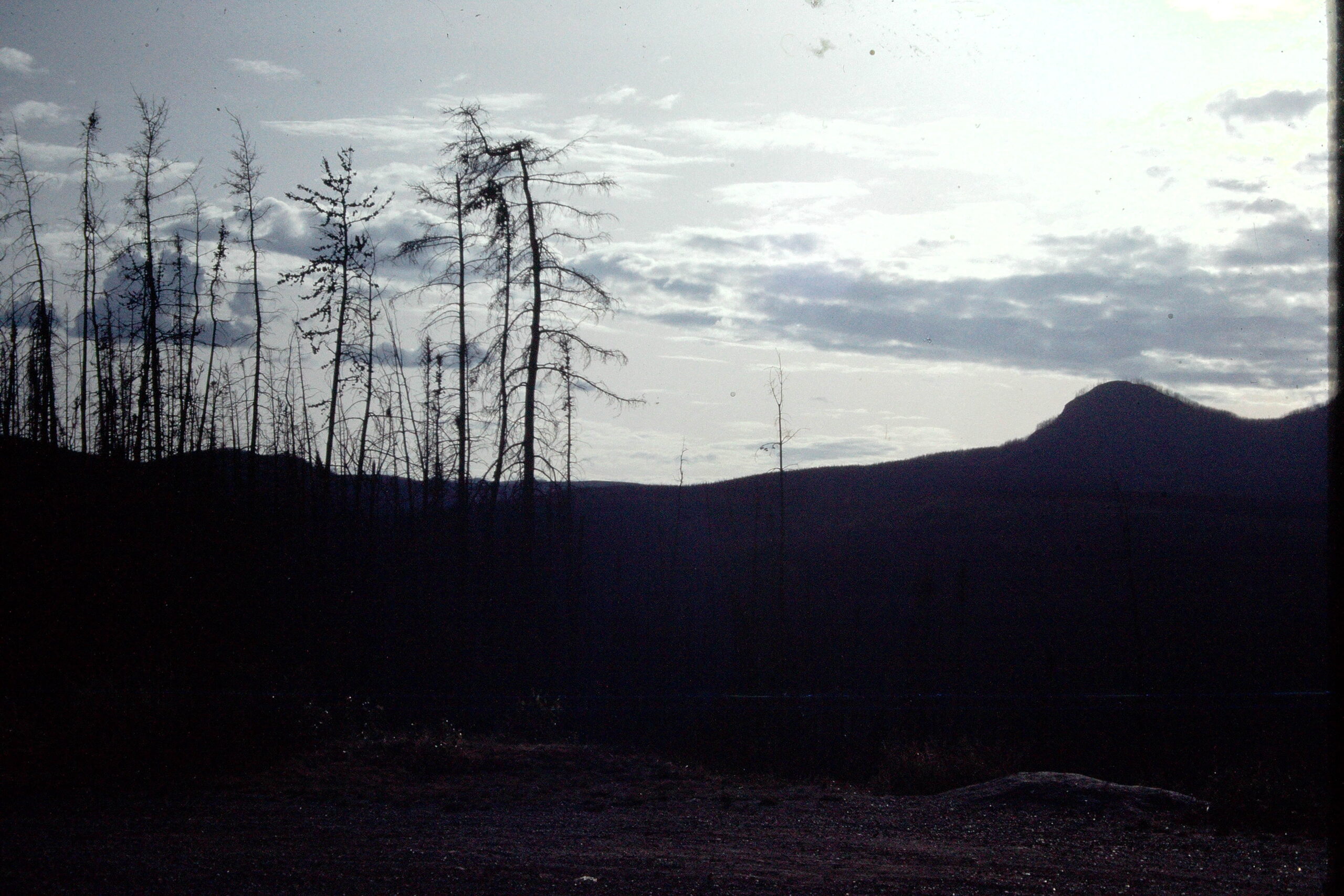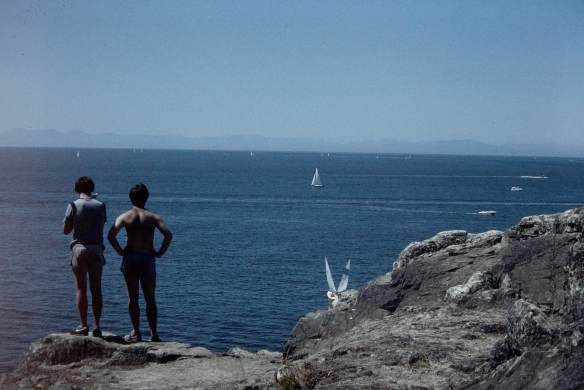July 23-25, 1983 Mileage 1468 miles
The Young Chronicles details my 1983 hitchhiking trip across Canada. Having completed much of the journey west, I head south from the Yukon to Vancouver.
Greyhound Bus: $99 one way. My fear of isolated country and bears continued, as did my complacency. My rationale was based on saving on two nights accommodation.




As I have mentioned previously, I wrote a lot of drivel on my journey. The bus ride was no exception: In despair, the mind searched for an answer, for a reasonable excuse for a positive outlet, for a viable possibility. It is hard when one is alone. Alas, the sun sinks slowly down past the horizon’s wall.
July 25 – July 31 Stayed at Marco’s house in Vancouver. Monday: Beers in hot tub with Ranald, Gareth and Dave. Drinks on Granville Island with Marco and Graham. Tuesday: Caesars with Fiona, Graham and Hug. Wednesday: The UBC Pit with Sandy, Jackie, Graham and John. Thursday: Helped Marco move. Friday: Listened to Anthem of the Sun and Blues For Allah at Stewie’s house Saturday: Lighthouse Park with Gareth, Stewie, Ranald and Dave.

August 1, Mileage: 135 miles
Ferry and public transit from Vancouver to Victoria.
Ride One: Victoria to Elk Island. Big car from Alberta. Driver hit on me. “Want to spend the night?“
Ride Two: Elk Island to Schwartz Bay. TR7. Worried woman. “Don’t you try anything. I have a gun under my seat.”

Ferry back to Tsawwassen and Vancouver.
























